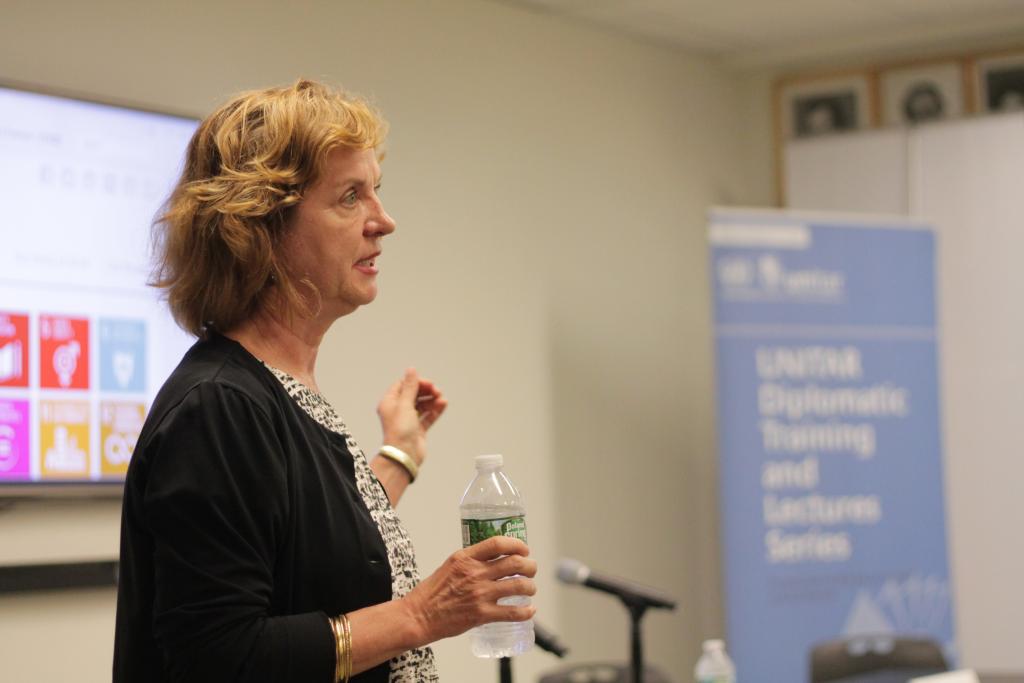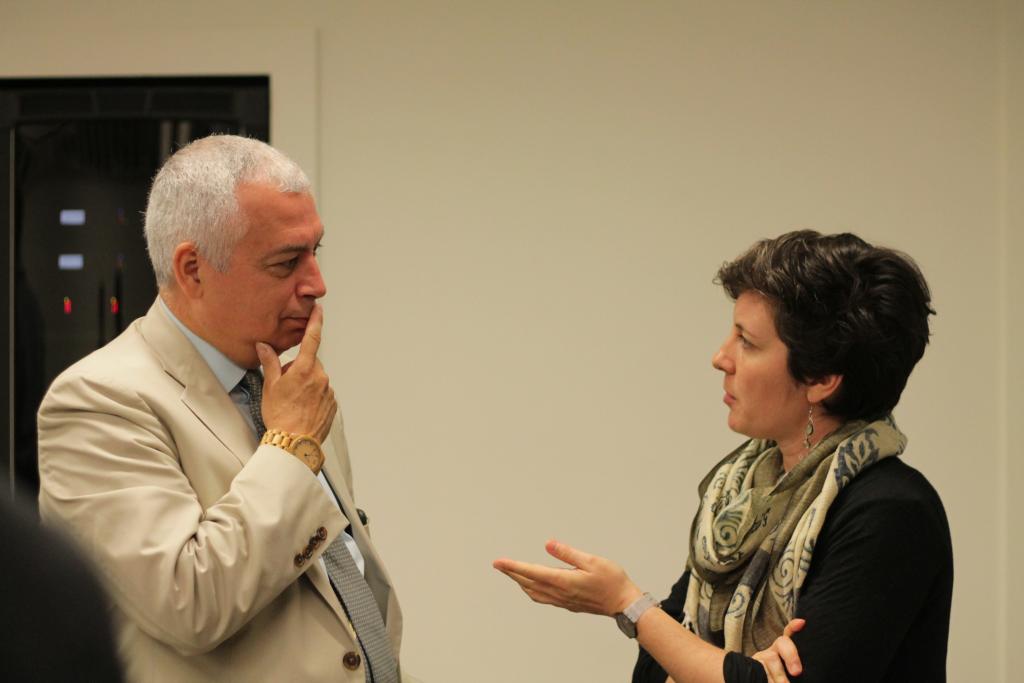UNITAR Organizes Workshop on "Behavioural Insights towards the Implementation of SDG 13"
 27 of June 2017, New York, USA - The United Nations Institute for Training and Research organized a course titled “Behavioural Insights towards the Implementation of Sustainable Develoment Goals (SDGs) 13 (Climate Action)”. The course focused on three main points; first - raising awareness of behavioural insights and it’s applications toward the achievement of the 2030 Agenda for Sustainable Development SDG 13. Secondly, another section of the course focused on building the participants understanding of common tools in the behavioural insights toolbox such as defaults, social norms and clear action set. Finally, the last section emphasized on evidence based mind-sets on to the participants to critically consume information that is relevant to SDG 13 and gaining practical experience in applying behavioural insights in the challenge of interest.
27 of June 2017, New York, USA - The United Nations Institute for Training and Research organized a course titled “Behavioural Insights towards the Implementation of Sustainable Develoment Goals (SDGs) 13 (Climate Action)”. The course focused on three main points; first - raising awareness of behavioural insights and it’s applications toward the achievement of the 2030 Agenda for Sustainable Development SDG 13. Secondly, another section of the course focused on building the participants understanding of common tools in the behavioural insights toolbox such as defaults, social norms and clear action set. Finally, the last section emphasized on evidence based mind-sets on to the participants to critically consume information that is relevant to SDG 13 and gaining practical experience in applying behavioural insights in the challenge of interest.
The course began with opening remarks from UNITAR Acting Head of the New York Office, Mr. Marco Suazo, and emphasized the importance of behavioural science and its application in a multidisciplinary aspect in order to address complex issues and further expanding on informing and implementing behaviourally informed policies and interventions.
 Followed by Mr. Suazo’s opening remarks, Dr. Elke Weber started the discussion in a detailed keynote speech where she highlights key insights in regards to new frontiers for behavioural insights. She heavily emphasized the use of behavioural insights and the importance it has in the need to build capacity, develop standards and furthermore explore ethical issues in the application of policies and interventions.
Followed by Mr. Suazo’s opening remarks, Dr. Elke Weber started the discussion in a detailed keynote speech where she highlights key insights in regards to new frontiers for behavioural insights. She heavily emphasized the use of behavioural insights and the importance it has in the need to build capacity, develop standards and furthermore explore ethical issues in the application of policies and interventions.
The first panel was comprised of Mary MacLenna: London School of Economics, Steve O’Neill: New York University and University College London, Filippo Cavassini: OECD and Dr. Irina Feygina, Climate Central where they all highlight three main points throughout their session. The first set of arguments was about the importance of how behavioural insights could improve policy makers understanding of behavioural drivers of environmental problems and help them develop more effective policies. Secondly was the link between technology and effectiveness and the implementation of behavioural insights in tackling environmental issues. Throughout this presentation, the panellists highlighted several cases such as water conserving challenges in Costa Rica.
Moreover, the second panel comprised of Filippo Cavassini: OECD, Steve O’Neill: New York University and University College London, Mary MacLenna: London School of Economics where they highlighted on the importance of understanding behaviour, where this context can be understood by social and environmental factors that evolve with time and changes in society. All three panellist have seem to agree that sustainable consumption behaviour requires a shift, whereas, viewing a sustainable consumption behaviour as a direct relation with a sustainable lifestyle that ultimately results in the people making certain decisions. In addition, they emphasized on ethics and good governance that can result in the implementation of behavioural insights.
 After the second panel, the course concluded with closing remarks from Ms. Aimee Lace and Mr. Marco Suazo who together stressed on the benefit of behavioural insights from other insights in other disciplines, where this combination will not only be powerful and beneficial but rather how it would improve the targets and tailors of interventions of local communities.
After the second panel, the course concluded with closing remarks from Ms. Aimee Lace and Mr. Marco Suazo who together stressed on the benefit of behavioural insights from other insights in other disciplines, where this combination will not only be powerful and beneficial but rather how it would improve the targets and tailors of interventions of local communities.
Photo 1: Ms. MacLennan, Dr. Feygina, Mr. O'Neill, Mr. Cavassini.
Photo 2: Dr. Elke U. Weber.
Photo 3: Mr. Suazo and Dr. Feygina

